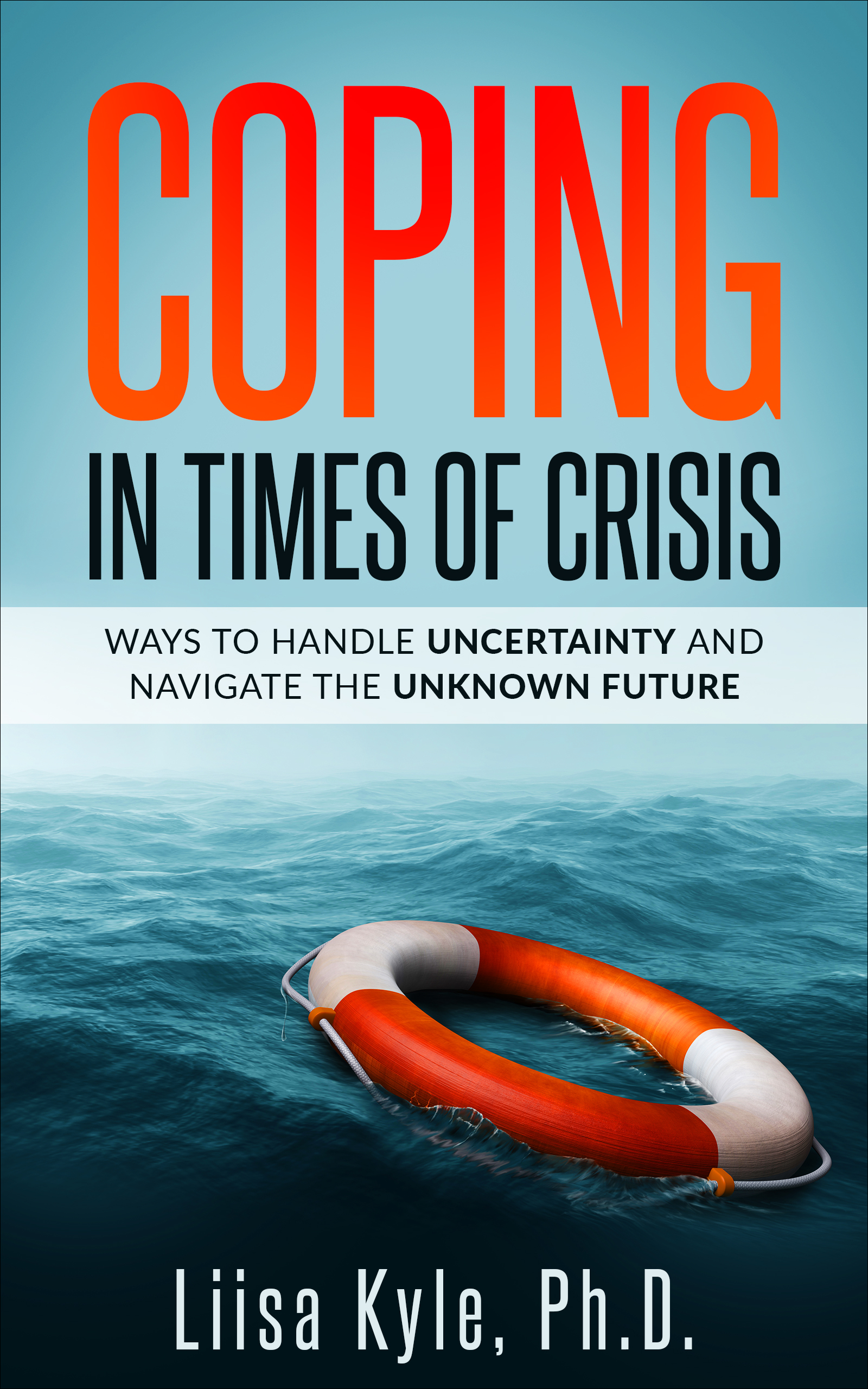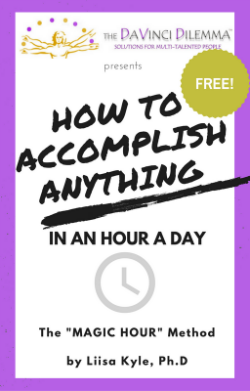A career satisfaction study by CareerBuilder.com came out a couple of years ago with a depressing statistic. It stated that 84% of people not only were not in their dream job, but hated their work. A vision of miserable clerks, cubicle dwellers, rat race runners and card-punchers comes to mind.
But I think this reading of the study misses an important point about career satisfaction. Maybe for some people, the term career satisfaction itself is an oxymoron. I wonder how many of these people hate their jobs because, well, it’s their job. Something they have to do, day in and day out. They have no choice. They feel trapped. Even without a stressful commute, conniving co-workers or a boss from hell, just the monotony and lack of autonomy alone can turn even a dream job into drudgery.
When I work with my clients who have many creative talents, they invariably dream of quitting their day job and going pro. “I wish I could make a living doing what I love.” They long to transform their talent from a hobby into a full-time career, from earning satisfaction and compliments on their work to earning a living from it. They envision work that is fun, days filled with activities that delight and absorb them, expressing themselves through their work, and total career satisfaction, with none of the boredom, oppression or office politics they may be experiencing now.
But I’ve noticed something about myself that applies to a lot of my clients as well. Even a dream job, even when you’re your own boss, is a “have-to”, not a “want-to”. And that can make all the difference between an activity you enjoy and one you dread.
Case in point: when I was a kid, I actually begged for the piano lessons my friends were forced to take. My grandmother bought me an upright, and I loved picking out tunes by ear and composing my own little songs. Then came the weekly lessons, the monotonous exercises, the music on the page that never changed and from which any deviation was a mistake, the struggle for my math-challenged brain to understand how there could be such a thing as quarter note. And the worst was the practice. The nagging by my mother to practice, the guilty knowledge as I played ball outside that I should be practicing, the quizzing by my teacher every week about how much I had practiced, and the hours of practice themselves, chained to the piano bench as securely as any Ben-Hur galley slave. It was a job. I began to dread and avoid it as much as I could. Four years after I started, I begged my mother to let me quit.
The day after I was liberated, I sat down at the piano and played for six hours straight, and enjoyed it. It was no longer a “have-to”.
When I took up watercolor, I loved it and soon started doing commissioned paintings from other people’s photos. I won’t say I hated it, but it wasn’t as much fun, especially when some people wanted changes (“I think the dog should be on the other side”), or I had to hound clients for my fee. Sadly, I found myself doing my own paintings less and less.
So, before you lament too long about how you aren’t doing one of your favorite talents as your job, think hard about whether doing so would actually choke your passion for it. There are luxuries you have as an amateur that you do not have, at least not starting out, as a professional, including complete creative control, taking as long as you like, and the freedom to make mistakes with impunity.
Activity: Think of a talent you’ve fantasized about making into a career. Here are some questions to ask yourself:
- Would I still think of this as a dream job if I knew that I had to do it every day?
- Would I still have career satisfaction even if I had to cater to the marketplace, make changes I didn’t agree with or answer to clients who might not always make the most intelligent or reasonable requests?
- Would this still be a dream job if there were constant deadlines?
- Would I still be happy to do this even if my work were under scrutiny and subject to criticism?
- Would I still derive pleasure from this activity if failure were no longer an option?
- Would I still enjoy doing this if I also had to handle or manage the business tasks such as bookkeeping, marketing my talent, soliciting clients, and asking them for money?
Unless most or all of these are an enthusiastic “yes”, you might consider guarding your amateur status while you subsidize your art with what author and coach Barbara Sher calls “the good-enough job” , rather than chase a phantom dream job. The word amateur has come to mean “substandard” or “unprofessional” in common parlance, but the word’s meaning is actually “lover.” That is, an amateur does his thing because he loves it, rather than for a job; it’s a “want-to”, rather than a “have-to.” If you want to work using your talent and still love it, it needs to be both.
How has doing your creative work professionally affected how much you enjoy it? Let us know!
*****
If you’d like to share or publish this article, you may, if you include the author’s name, a link to this original post and the following text blurb:
Are you struggling with too many talents, skills, ideas? You may have The Da Vinci Dilemma™! Find tools, fun quizzes, coaching, inspiration and solutions for multi-talented people at http://www.davincidilemma.com/.




Trackbacks/Pingbacks